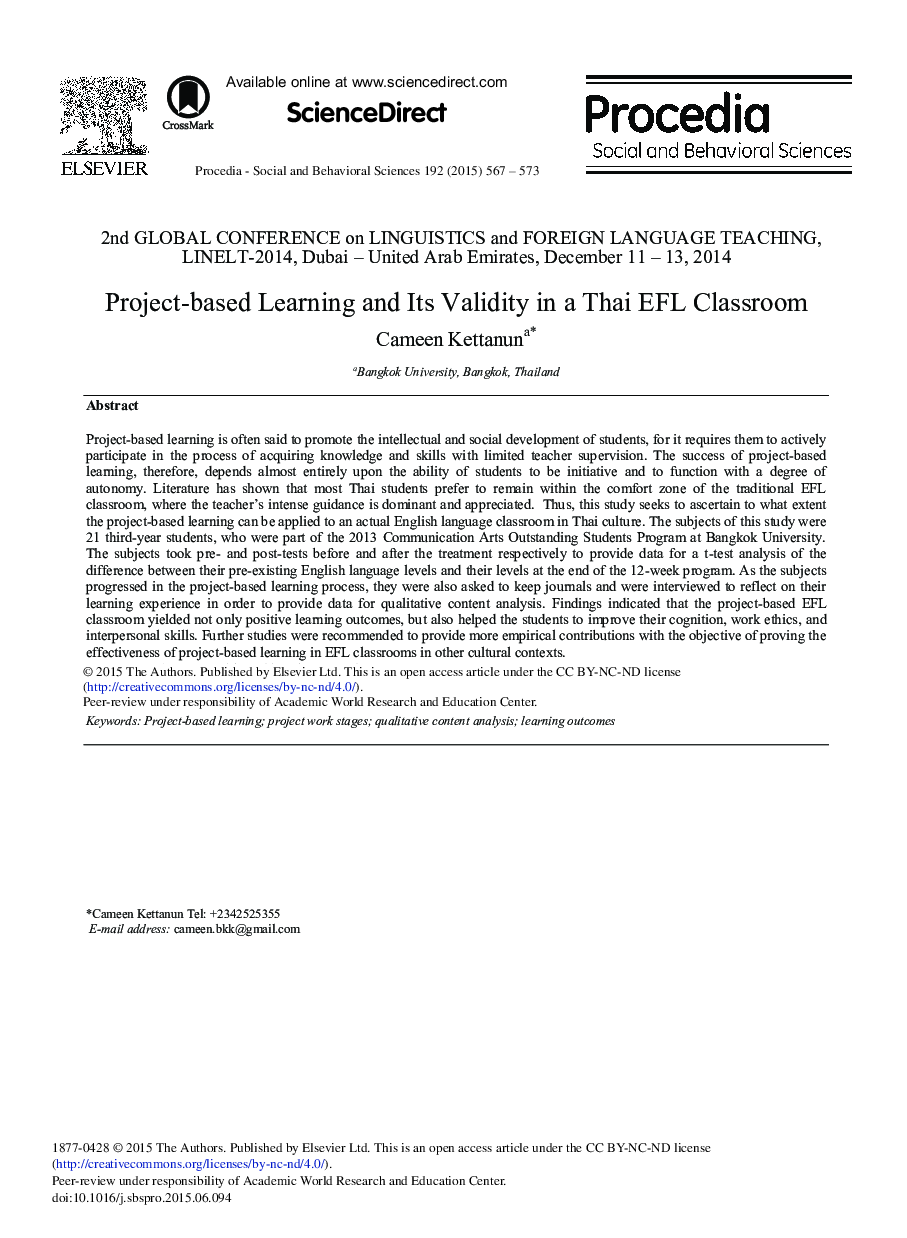| Article ID | Journal | Published Year | Pages | File Type |
|---|---|---|---|---|
| 1109296 | Procedia - Social and Behavioral Sciences | 2015 | 7 Pages |
Project-based learning is often said to promote the intellectual and social development of students, for it requires them to actively participate in the process of acquiring knowledge and skills with limited teacher supervision. The success of project-based learning, therefore, depends almost entirely upon the ability of students to be initiative and to function with a degree of autonomy. Literature has shown that most Thai students prefer to remain within the comfort zone of the traditional EFL classroom, where the teacher's intense guidance is dominant and appreciated. Thus, this study seeks to ascertain to what extent the project-based learning can be applied to an actual English language classroom in Thai culture. The subjects of this study were 21 third-year students, who were part of the 2013 Communication Arts Outstanding Students Program at Bangkok University. The subjects took pre- and post-tests before and after the treatment respectively to provide data for a t-test analysis of the difference between their pre-existing English language levels and their levels at the end of the 12-week program. As the subjects progressed in the project-based learning process, they were also asked to keep journals and were interviewed to reflect on their learning experience in order to provide data for qualitative content analysis. Findings indicated that the project-based EFL classroom yielded not only positive learning outcomes, but also helped the students to improve their cognition, work ethics, and interpersonal skills. Further studies were recommended to provide more empirical contributions with the objective of proving the effectiveness of project-based learning in EFL classrooms in other cultural contexts.
